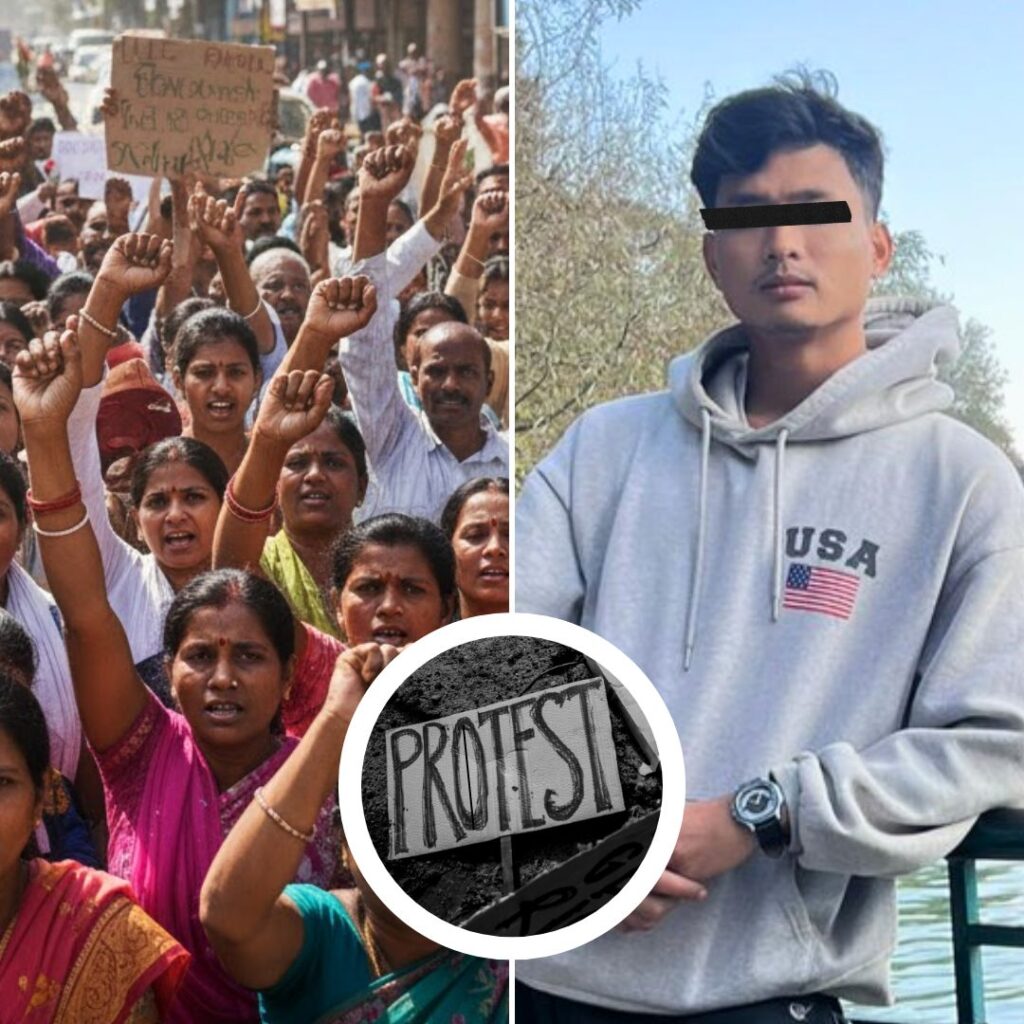It is for the first time that Gagandeep Kaur, 17, is forced to sow paddy in fields during sweltering heat in Punjab. A Dalit Sikh, Kaur’s parents are also agricultural labourers who work in the same field.
Kaur is a class 12th student at government school in Barnala in Punjab. Her parents did not have any work for the past three months due to the nationwide lockdown. It was for this reason that her family of six members was facing severe problems.
‘Food was not a problem as it was served by local Gurudwaras during the entire lockdown period. But now my parents have to sustain a family of six members due to which I decided to help them during paddy sowing,’ said Gagandeep Kaur.
She says that even the water that is present in the fields become so hot that it gives a burning sensation on feet.
Farmers or landowners in Punjab who mostly belong to the ‘Jat’ Sikh or high caste community employ migrant labour for paddy sowing every year. However, due to the pandemic and subsequent lockdown, all migrant workers went back to their homes in Bihar, and Uttar Pradesh and the onus came on the domestic Dalit workers.
Dalits form nearly 32 per cent of the total population of Punjab and even then they do not dominate the political scene. From extreme poverty to discrimination especially in rural areas of the state, Dalits have been fighting since centuries to claim their dignity and self-respect.
Hundreds of Dalit school going boys and girls have come out to help their parents during this paddy season. It is also an opportunity for this poor section of society in Punjab to earn some extra money as the migrant labourers were few or not present at all in many villages.
A 10th standard student, Nirbhay Singh of village Jodhpur in Barnala, says that as the schools are closed, teachers were giving lessons online. ‘Government tells us to study online due to the lockdown, but I do not own a smartphone due to which my studies are suffering. To earn something for the family, I thought to work in fields as there was a shortage of migrant workers in our village. I am facing some problems in sowing paddy in fields as this is for the first time that I am doing such a work,’ he said.
As per the government figures, the literacy rate among Dalits in Punjab is 64.81 per cent as compared to the total literacy rate of 75.84 per cent of Punjab. The female literacy rate among Dalits stands at 58.39 per cent in the state and lags behind the 70.73 per cent literacy rate of the state. However, it is better than the SC female literacy rate of 56.46 per cent in the country.
The SC male literacy rate at 70.66 per cent of Punjab is also lower than the total male literacy rate of 80.44 per cent in the state. Being landless workers, Dalit workforce in Punjab is mostly employed in either daily wage works or as agricultural labourers.
Out of the total Dalit population in the state, SC workforce constitutes 35.88 per cent. Out of this 79.20 per cent are main workers while 20.80 per cent are marginal workers. Majority of this segment of society are agricultural labourers or are engaged in low wage and arduous occupation.
The students come to the fields early in the morning and continue sowing paddy till afternoon. The state government had allowed the farmers to sow the paddy from June 10.
Due to the deteriorating groundwater levels, the date for paddy sowing is announced by the state government every year after consulting the experts. The date for paddy sowing in fields was fixed for June 20 earlier, but due to the shortage of migrant labour, it was advanced to June 10.
When The Logical Indian visited villages in Barnala district to know if these school goers were working in paddy fields, many of them refused to talk saying that the administration may not allow them to work as most of them were minor. Some of them agreed to talk to us with their faces covered. They said they were working in fields willingly and wished to contribute to the income of their families.
Harjot Kaur, a student of 11th standard who is also helping her parents in sowing paddy says that for the work in fields, the labourers are being paid Rs 300 per day. Harjot and her parents are part of a group of local labourers who will sow the crop on at least five acres of land. ‘Most of my friends have started sowing paddy and are eaning a good amount for their work. I give the money earned to my father,’ said Kaur.
Mahi Pal, finance secretary of, Dehati Mazdoor Sabha, an organization working for labourers in Punjab said that most of the children from Dalit families have come out in rural Punjab to work with their parents in fields. ‘As there was no source of income with the Dalit workers for the past three months since a lockdown was announced, there was desperation among them. While their food and other necessities were being taken care of by the society as a whole, they did not have any money during this period,’ said Mahi Pal.
Bobby Singh, a class 11th student from Sangrur district, wishes to b…













